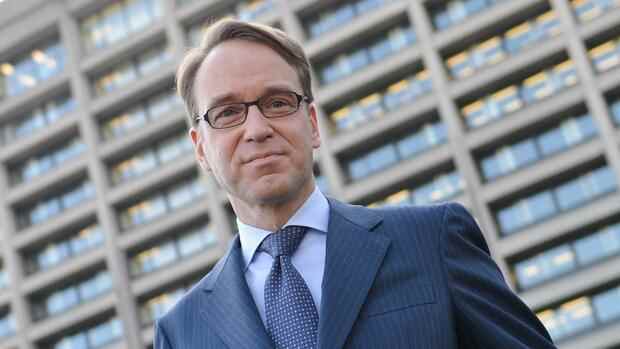Frankfurt, Berlin Bundesbank President Jens Weidmann resigns after ten years in office. Weidmann asked Federal President Frank-Walter Steinmeier to be released from office at the end of the year, the Bundesbank said.
“I have come to the conclusion that more than ten years is a good time to start a new chapter – for the Bundesbank, but also for me personally,” Weidmann wrote in a letter to the Bundesbank employees.
The Bundesbank President informed Chancellor Angela Merkel (CDU), Federal President Steinmeier, Finance Minister Olaf Scholz (SPD) and ECB President Christine Lagarde about the resignation on Wednesday. He assured Scholz that his move was not related to the federal election.
According to informed sources, he has been considering the option of withdrawing since the decision for the ECB presidency was taken against him. Out of respect for Lagarde and then also because of the corona pandemic, he delayed the decision.
Top jobs of the day
Find the best jobs now and
be notified by email.
Obviously, it’s about not attracting too much attention. Weidmann and Lagarde assured each other of their mutual appreciation over the phone. “Jens is a good personal friend whose loyalty I have always been able to count on,” said the ECB President on Wednesday. You respect his decision, “but I deeply regret it.”
The news was received with surprise in Berlin. Finance Minister Scholz thanked Weidmann for an extraordinary commitment over the past ten years. “He not only significantly shaped monetary policy in Germany and Europe during this time, but also advanced the further development of the international financial markets.” The topic is now also to be discussed in the coalition committee of the Union and the SPD.
Weidmann has always insisted on separating monetary and financial policy
With his regulatory approach in the Governing Council, Weidmann felt himself to be in a structural minority. The outgoing Bundesbank president, who has always insisted on a clean separation of monetary and financial policy, is particularly concerned about the decision on the PEPP pandemic emergency program due in December. According to the current plan, it runs until the end of March and offers the ECB particularly flexible options to buy government bonds and thus support individual countries such as Italy.
Should this flexibility be retained after the PEPP expires, that would be a regulatory problem from Weidmann’s point of view. In an interview with the Handelsblatt, he emphasized that an emergency option had to be ended when the emergency was over.
In the letter to the employees, he demands “not to look one-sidedly at deflation risks, but also not to lose sight of prospective inflation risks”. A “stability-oriented monetary policy” will only be possible in the long term if the regulatory framework of the monetary union continues to ensure the unity of action and liability, monetary policy respects its narrow mandate and does not get caught up in fiscal policy or the financial markets.
More: Jens Weidmann: New ECB inflation target is “clear and easy to understand”
